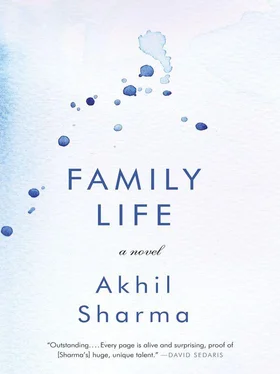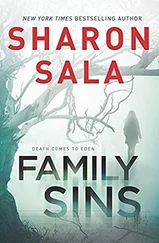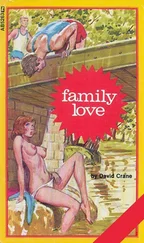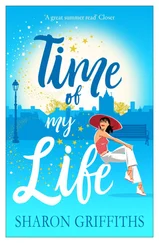“My son had an accident in a swimming pool,” my mother said. “He’s in a coma.” She said this shyly, as if she were sharing something precious. I became irritated. I thought, No. Birju is not in a coma. He is brain damaged. He is destroyed.
“Can he not talk at all?” the woman asked.
“No,” my mother said and looked embarrassed.
“If you are in a room with him and sitting next to him, will he not know it?”
“There is no coma,” my father said. “He is not asleep. Our son has his eyes open. He can’t walk or talk. My wife says this coma thing because she thinks this sounds better.”
Mrs. Kohli smiled. She nodded her head proudly. “See? A parent’s love knows no shore.”
My father said, “I’m going to go sit down.”
Mrs. Kohli took us to meet other women. Again, my mother said that Birju was in a coma. These women, too, kept asking whether Birju really could not talk at all.
About an hour or so after we arrived, the reading of the Ramayana was nearing its end. Women sat cross-legged with their heads covered as if they were in temple. My mother and I sat together. My father sat nearby, his head bowed, looking down at the white sheet.
Usually, the host or hostess is the one who reads the end of the Ramayana . Mrs. Kohli came walking through the crowd, stepping carefully past knees. She reached my mother and me. Looking at my mother, she said, “Please come. Read the last verses.”
“Ji, that is for you to do.” My mother appeared at a loss, like someone trying to refuse an expensive gift from someone she hardly knew.
WE BEGAN RECEIVING invitations to people’s houses, usually in connection with some religious ceremony. When we went, we were treated very respectfully, especially my mother. As soon as she entered a house, she was surrounded by women. It was as if we represented something — love of family, sacrificing for others. I, too, began to say that Birju was in a coma. This seemed what people wanted to hear. Once I told a man that Birju was brain damaged, that there was no hope, and he looked down at me and smiled and nodded like I was saying something other than what I actually was.
People visited us at the nursing home. Mostly these were couples with children. Often, it appeared, they hoped to teach their children a lesson. Once a man scolded his five-year-old daughter in front of us. “See what we do for you? Would an American do what Auntie and Uncle are doing? An American would say, ‘You have to stand on your own two feet. You live your life, and I will live mine.’ This is what we Indians do. We love our children too much. Go touch Birju brother’s feet.” The girl went slowly, hesitantly, to the hospital bed. Birju was wearing white socks. His feet were lying on a sheepskin, and because their tendons had shrunk, they turned inwards and almost met.
We also had men visit who said they could make Birju normal. These were men who worked as travel agents, candy-shop owners, engineers. A few came with their wives. Most came alone. Once, a mathematician who taught at a university visited. He had a horseshoe of hair around his scalp and a little narrow mustache. He sat by Birju with his hands on his stomach, his legs stretched before him, and he began quietly to lecture on Hindu scripture. He chuckled as he spoke, as if he were surprised by his own intelligence. Some of the words he used were English, and he used these when he wanted to show that he recognized science. “Ji, this akashvani , obviously this is a radio.” He said “obviously” in English. “Many things,” he said in English, “which Westerners say they invented, we had thousands of years ago. Aeroplanes. Television.” Then he switched to Hindi. “There is proof. It is not like I am just saying this.” He said this and laughed. He picked his nose, examined the snot, and flicked it beneath Birju’s bed.
I was used to people saying Indians had invented most things. I had heard such claims many times before. A few men that visited said God had appeared to them in a dream and told them how to wake Birju. Others said that they had learned a cure from a saint in India.
I did not like these “miracle workers.” It seemed to me that they wanted to try their so-called cures on Birju because doing so would make them feel that they were at the center of important things. Still, there was comfort in having visitors. I dreaded the moment of their departure, when my parents and I would be alone again with Birju. When people left, the loneliness came so quickly that it was as if a window had been opened and cold air had rushed in. Sometimes this loneliness was so great that I almost wished that they had not visited.
Ordinary people, people who were calm, cheerful, and polite, also came. They invited us to their homes for dinner. In some ways my mother liked them more. With her suspicious nature, she saw melodrama as a way of covering things up. But the melodramatic people said more extreme things. They gave us more attention.
EVERY DAY AT two-thirty, my mother would fetch me from school and bring me to the nursing home. My father arrived at six. At seven, we went back to our apartment.
Our apartment consisted of one room with a sofa in the middle, facing a kitchenette and a television that sat on a cardboard box. Each night, I flung a sheet over the sofa and slept on it. My parents slept on a sponge mattress behind the sofa. On Friday and Saturday nights, my father stayed up very late watching movies on the VCR. Before the accident, he hadn’t liked movies as much as my mother and I did. Now, he sat right in front of the television with the sound turned very low until two or three in the morning. He liked comedies especially: Gol Maal, Naram Garam, Chhoti Si Baat . Periodically through the night, I would wake and the room would be jumping with blue lights. When I rolled over on my side, I would see my father sitting there, directly in front of the TV. Almost always, he was drunk. His mouth would be open as if he were captivated by what he was seeing. Sometimes on weekends, my father did not come to the nursing home until noon or one o’clock. He would remain lying on the mattress as we ate breakfast. He would remain lying there as my mother and I left and stepped into the hallway.
Spring came. In the park that we passed on our way to and from the nursing home, the branches of the trees grew mossy with budding leaves. And then summer arrived. School ended, and I spent all day at the home.
In the morning, when we left the apartment, it would be bright and hot and humid. Our building was near the end of Main Street, a few hundred yards from the large old post office. There were parking meters on the sidewalk, gray metal poles the shape of matchsticks, upright, proper, brave, waiting for a coin so that they could come to life. When I walked past a parking meter, I would reach out and touch it.
We had sued the apartment building where Birju had had his accident. There had been a lifeguard on duty as Birju lay underwater. The fact that Birju was not spotted quickly was one mistake. When he was dragged out and was lying by the side of the pool, he was not given mouth-to-mouth resuscitation. This was a second mistake.
My father said that Birju had not gotten mouth-to-mouth resuscitation because he was Indian.
“Shut up,” my mother shouted.
This was in Birju’s room. My father was drunk, but he had said the same thing sober many times during the months that we waited for the financial settlement. I knew that what my father was saying was a lie. Hearing him say this was comforting, though, because then Birju’s accident was no longer purely accidental, unconnected to the larger world, lacking all meaning. Also, there was something satisfying about being angry.
Читать дальше












